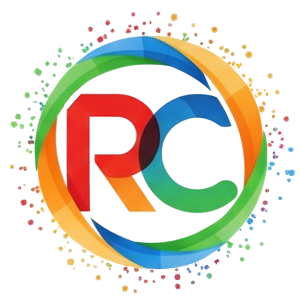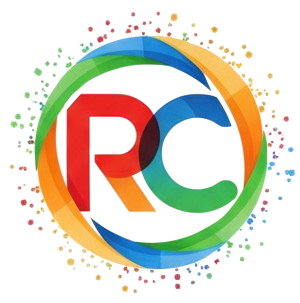How to Write Like a Nurse: Academic and Clinical Writing Tips
Writing is an essential skill for nurses, both in academic settings and clinical practice. Effective writing ensures clear communication, supports nurs fpx 6020 assessment 3 evidence-based practice, and enhances patient care. Nurses must be proficient in various forms of writing, including research papers, case studies, reflective essays, clinical documentation, and professional communication. Developing strong writing skills requires practice, adherence to academic and professional standards, and a clear understanding of audience and purpose.
Academic writing in nursing involves presenting research, analyzing case studies, and synthesizing information from credible sources. Nursing students must demonstrate critical thinking, evidence-based reasoning, and adherence to formatting guidelines, such as APA style. Clear and concise writing helps convey ideas effectively while ensuring logical organization. Structuring academic papers with an introduction, body, and conclusion enhances readability and coherence. The introduction should outline the topic, objectives, and significance of the discussion. The body should include well-researched arguments, supporting evidence, and critical analysis. The conclusion should summarize key points and reinforce the importance of the discussion.
Evidence-based writing is fundamental in nursing education and practice. Using reliable sources, such as peer-reviewed journals, academic books, and reputable medical databases, strengthens the credibility of written work. Incorporating research findings into writing requires proper citation and synthesis of information. Avoiding plagiarism is crucial to maintaining academic integrity. Paraphrasing, quoting, and properly referencing sources ensure ethical writing practices. Plagiarism detection tools can help students verify originality and improve citation accuracy.
Clarity and precision are essential in nursing writing. Complex medical concepts should be communicated in an accessible manner without unnecessary jargon. Sentences should be concise, and paragraphs should follow a logical flow. Using active voice enhances clarity, while avoiding vague or ambiguous language ensures that the message is accurately conveyed. Proofreading and editing help eliminate grammatical errors, spelling mistakes, and inconsistencies. Seeking feedback from peers, instructors, or writing tutors can provide valuable insights for improvement.
Reflective writing is a critical component of nursing education. Nurses often engage in self-reflection to analyze experiences, identify strengths and weaknesses, and improve future practice. Writing reflective essays involves describing clinical encounters, evaluating personal responses, and drawing connections to theoretical concepts. Self-reflection fosters professional growth and enhances critical thinking skills. Writing reflectively allows nurses to gain deeper insights into patient care, ethical dilemmas, and decision-making processes.
Clinical documentation is a vital aspect of nursing practice. Accurate and thorough documentation ensures continuity of care, enhances patient safety, and serves as a legal record. Nurses must document assessments, interventions, patient responses, and care plans clearly and concisely. Standardized terminology and abbreviations improve consistency and understanding among healthcare professionals. Avoiding subjective language and maintaining objectivity are essential for professional documentation. Writing in a factual and non-judgmental manner enhances the credibility and reliability of medical records.
Time management plays a significant role in successful writing. Nursing students and professionals must balance multiple responsibilities, making efficient writing strategies essential. Planning and outlining before writing help organize thoughts and structure content effectively. Breaking tasks into manageable sections prevents procrastination and reduces stress. Setting deadlines and adhering to a writing schedule ensure timely completion of assignments. Developing a habit of daily writing practice can improve proficiency and confidence over time.
Professional communication in nursing extends beyond academic and clinical writing. Nurses must write emails, reports, and proposals with clarity and professionalism. Email communication should be concise, respectful, and structured appropriately. Professional writing in healthcare settings ensures effective collaboration among team members and supports organizational objectives. Writing with a professional tone and avoiding informal language enhances credibility and fosters positive professional relationships.
Developing critical thinking skills enhances nursing writing. Nurses must analyze information, evaluate research findings, and present logical arguments. Writing assignments often require the application of theoretical knowledge to real-world scenarios. Engaging in literature reviews, case analyses, and research projects fosters critical inquiry and evidence-based decision-making. Strong analytical skills contribute to the ability to present well-supported arguments and recommendations.
Ethical considerations are integral to nursing nurs fpx 6116 assessment 2 writing. Maintaining patient confidentiality, avoiding bias, and adhering to ethical guidelines are essential. Nurses must ensure that writing remains objective, respectful, and professional. Misrepresentation of data, fabrication of information, and breaches of confidentiality can have serious ethical and legal implications. Adhering to ethical writing standards reflects integrity and professionalism in nursing practice.
The use of technology enhances nursing writing. Digital tools such as reference managers, grammar checkers, and plagiarism detectors streamline the writing process. Online databases provide access to current research and evidence-based literature. Utilizing electronic health records for clinical documentation improves efficiency and accuracy. However, reliance on technology should not replace critical thinking and careful proofreading. Balancing technology with manual review ensures high-quality writing.
Writing mentorship and peer collaboration contribute to skill development. Seeking guidance from experienced nurses, educators, and writing tutors provides constructive feedback and support. Participating in writing workshops, peer reviews, and discussion groups fosters continuous learning. Engaging in collaborative writing activities enhances teamwork and knowledge sharing. Constructive criticism helps identify areas for improvement and encourages refinement of writing skills.
Self-assessment and goal setting aid in writing improvement. Keeping a writing journal, tracking progress, and setting personal writing goals enhance self-awareness. Identifying recurring challenges and working on specific areas of weakness lead to gradual improvement. Reflecting on past writing experiences helps identify patterns and develop effective writing strategies. A commitment to continuous learning and self-improvement strengthens nursing writing proficiency.
The transition from academic to professional writing requires adaptability. Nurses must be prepared to apply writing skills in diverse healthcare settings. Clinical reports, patient education materials, policy documents, and research articles require different writing approaches. Adapting writing style and tone to suit different audiences and purposes ensures effective communication. Mastering professional writing enhances career advancement and contributes to the nursing field.
Developing a personal writing style adds authenticity to nursing writing. While adhering to academic and professional standards, nurses can cultivate their unique voice. Expressing ideas with confidence and clarity enhances engagement and impact. A well-developed writing style reflects critical thinking, professionalism, and intellectual maturity.
Mastering nursing writing benefits nurses beyond academic success. Strong writing skills support career growth, leadership opportunities, and contributions to nursing research. Nurses who excel in writing can influence healthcare policy, advocate for patient rights, and contribute to scholarly publications. Writing serves as a powerful tool for education, communication, and professional development in nursing.
In conclusion, writing is a fundamental skill that enhances academic success, clinical practice, and professional communication in nursing. Clear and evidence-based writing supports effective communication, ethical integrity, and critical thinking. Developing strong writing skills requires practice, feedback, and adherence to professional standards. Reflective writing, clinical documentation, and professional communication are essential components of nursing practice. Mastering writing empowers nurses to contribute meaningfully to healthcare, improve patient outcomes, and advance the nursing profession.





